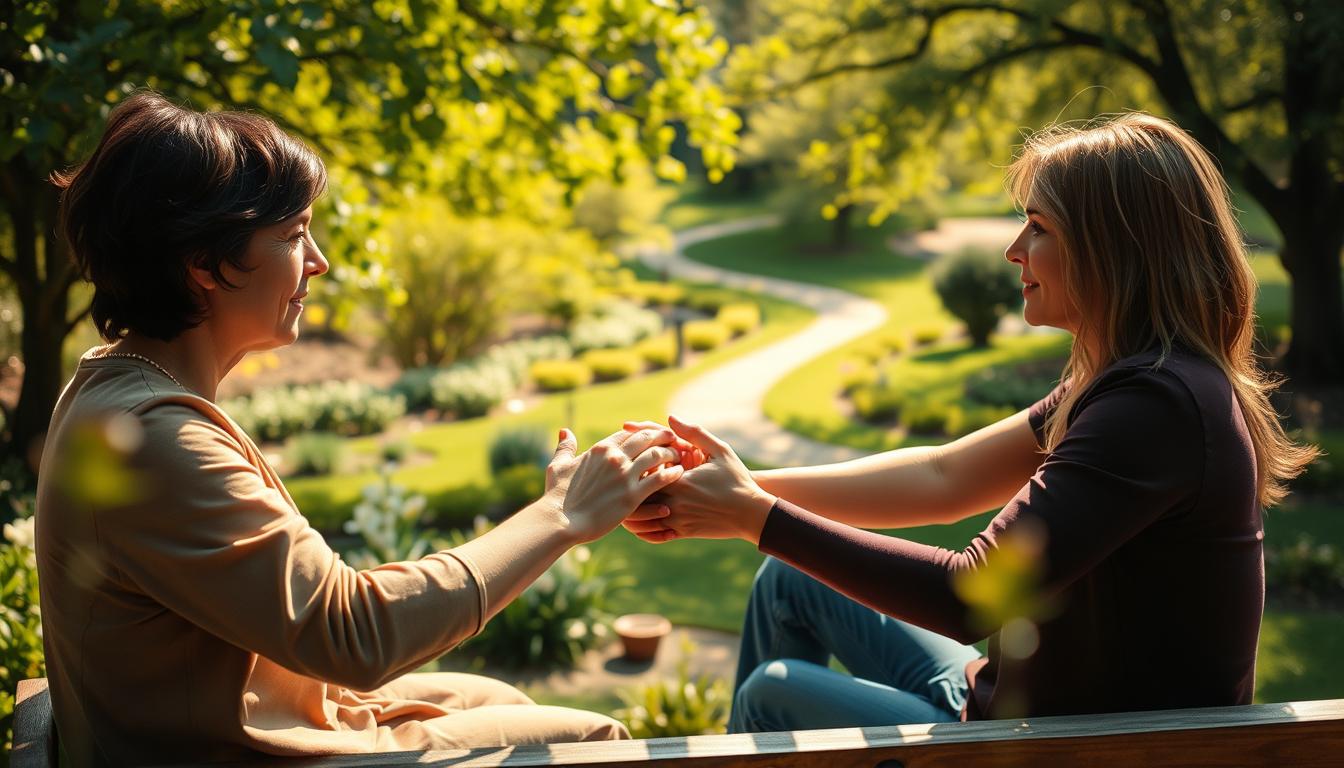Mutual Respect: The Key to Meaningful Connections
Building strong, meaningful connections is key in our lives. At the heart of these connections is mutual respect. It’s a fundamental element that helps deepen relationships.
By promoting healthy relationships and creating a culture of respect, we lay a strong foundation. This foundation is built on trust, understanding, and cooperation. It leads to more harmonious and productive interactions.
In today’s society, understanding the importance of mutual respect is crucial. By embracing this value, we can build a more positive and supportive environment. This leads to stronger, more meaningful connections.
Key Takeaways
- Mutual respect is essential for building strong, meaningful connections.
- Promoting healthy relationships is crucial for personal and professional growth.
- Creating a culture of respect fosters trust, understanding, and cooperation.
- Embracing mutual respect leads to more harmonious and productive interactions.
- A culture of respect is vital for a positive and supportive environment.
What Makes Mutual Respect the Foundation of Strong Relationships
At the heart of every strong relationship is mutual respect. This key element is vital for building trust and understanding between people. It helps them face life’s challenges together.
Mutual respect is not just a feeling; it’s an action. It involves several important parts. Let’s explore what makes mutual respect so crucial.
The Essential Elements of Genuine Respect
Genuine respect includes active listening, empathy, and understanding. It’s about valuing someone’s feelings, thoughts, and boundaries.
- Active Listening: Paying attention to what the other person is saying, both verbally and non-verbally.
- Empathy: Trying to understand the other person’s perspective and feelings.
- Understanding: Recognizing and respecting the other person’s needs and boundaries.
By adding these elements, people can cultivate mutual dignity. This creates a strong, healthy relationship.
How Respect Differs Across Different Relationships
Respect looks different in various relationships. For example, in a professional setting, it means following rules. In personal relationships, it’s about being supportive and understanding.
| Relationship Type | Characteristics of Respect |
|---|---|
| Professional | Following hierarchy, code of conduct |
| Personal | Being supportive, understanding |
| Familial | Showing appreciation, honoring traditions |
This shows respect’s complexity and flexibility in different situations.
Why Respect Must Be Mutual to Be Meaningful
For respect to be truly meaningful, it must be mutual. When both respect each other, it creates a balanced and healthy relationship. This strengthens interpersonal connections.
Mutual respect makes people feel valued and heard. It leads to deeper and more meaningful relationships.
Fostering Mutual Respect in Your Daily Interactions
Mutual respect is key to any strong connection. It starts with how we interact every day. By adding simple yet effective habits to our daily lives, we can make our relationships better.
Mastering the Art of Active Listening
Active listening is a powerful way to build mutual respect. It means really focusing on what the other person is saying. To listen well, keep eye contact, don’t interrupt, and ask questions to clarify. This shows you value their thoughts and helps build trust and understanding.
Setting and Honoring Personal Boundaries
Respecting personal boundaries is vital for respectful interactions. Boundaries help us know what we’re comfortable with, avoiding misunderstandings and resentment. Be clear about your boundaries and respect others’. This creates a space of mutual respect and trust.
Developing Empathy Through Perspective-Taking
Empathy lets us understand and share another’s feelings. To develop empathy, imagine seeing things from their point of view. This leads to more harmonious and respectful relationships. Try new things and think about how others might feel in different situations.
| Practice | Description | Benefit |
|---|---|---|
| Active Listening | Fully concentrate on the speaker, understand their perspective, and respond thoughtfully. | Builds trust and understanding |
| Setting Boundaries | Clearly define and communicate what you are and aren’t comfortable with. | Prevents misunderstandings and resentment |
| Perspective-Taking | Put yourself in others’ shoes and see things from their viewpoint. | Encourages empathy and courtesy |
Communicating Respectfully During Disagreements
Disagreements happen, but how we talk during them is crucial. Stay calm, listen well, and focus on the issue, not personal attacks. This way, we can solve problems respectfully and strengthen our bonds. The goal is to understand each other, not to ‘win’ the argument.
By using these strategies, we can improve mutual respect, foster respectful interactions, and encourage empathy and courtesy. Building mutual respect is a continuous effort that’s rewarding.
How Respectful Relationships Transform Your Life
Respectful relationships can change our lives in big ways. By fostering mutual respect, we make a space where everyone feels important, heard, and understood. This is key for promoting healthy relationships that last and bring joy.
Building Unshakeable Trust and Emotional Safety
One big plus of respectful relationships is the trust and emotional safety they build. When people respect each other’s limits and feelings, they create a safe place. Here, they can be themselves without fear of being judged or rejected.
This trust grows from consistent actions and open talks. It lets people feel emotionally safe and supported.
Creating Deeper Connections Through Mutual Understanding
Mutual respect also helps build trust and understanding between people. By listening well and trying to see things from another’s point of view, connections get stronger. This understanding brings people together, making relationships more rewarding.
Weathering Storms Together: Respect During Challenges
Respectful relationships face challenges, but they handle them better. When disagreements come up, respect helps people solve problems in a good way. By respecting each other’s views, they find common ground and grow closer.
In short, fostering mutual respect is vital for changing our lives through our connections. It builds trust, deepens bonds, and helps us face challenges together. This way, we create relationships that are not just good but also strong against hard times.
Breaking Through Barriers to Cultivate Respectful Relationships
Breaking down barriers is key to building strong connections. In our quest for creating a culture of respect, we face obstacles. Knowing these challenges helps us overcome them.
Identifying Disrespect in Your Interactions
Spotting disrespect is vital to fix it. Disrespect can show up in many ways, affecting our relationships.
Verbal and Non-verbal Red Flags
Words like condescending language and interruptions are disrespect signs. Non-verbal signs like avoiding eye contact also show disrespect. Knowing these red flags helps us tackle issues fast.
Our past shapes how we see and act on respect today. Traumatic experiences can make trusting others hard. Understanding our past helps us cultivating mutual dignity and respect.
Rebuilding Respect After It’s Been Damaged
Fixing damaged respect takes effort from everyone. It means acknowledging hurt, apologizing truly, and making things right. This can strengthen our bonds and deepen understanding.
Teaching Respect Across Family, Work, and Community
Teaching respect is a big job that touches our lives in many ways. By showing respect and encouraging talking openly, we build a culture of respect. This improves our personal ties and helps society become more harmonious.
Conclusion
Fostering mutual respect is key to building strong, meaningful relationships. Understanding its importance helps us create a better environment in our personal and work lives. This makes our interactions more harmonious and supportive.
Encouraging empathy and courtesy is vital in this journey. When we respect each other, trust grows, and connections deepen. This leads to a community where everyone feels valued and heard.
To keep fostering mutual respect, we must listen actively, show empathy, and communicate openly. This approach helps create a more respectful and compassionate society.
By living these values every day, we strengthen our relationships and help our community become more positive and supportive.







